Mozambique: Demobilised close Renamo Matola office, Momade re-opens it -Watch
Mozambique: Pandemic, armed conflict strain president’s year – analysts | Lusa

One year ago today, President Nyusi took office for a second term in office. [File photo: Magazine Indepedente]
Mozambican analysts said that the first year of Filipe Nyusi’s second and last presidential term was negatively marked by the management of armed violence in the central and northern regions of the country and the impact of the Covid-19 pandemic.
A year ago, Nyusi took office for another five years as the head of the Mozambican state, following his victory in the 15 October 2019 presidential elections – which were held simultaneously with the legislative and provincial elections.
Adriano Nuvunga, professor of Political Science at Eduardo Mondlane University (UEM), the largest and oldest in Mozambique, told Lusa that the first 12 months of Filipe Nyusi’s second term were tainted by mismanagement of the social impact of the Covid-19 pandemic and the wars in central and northern Mozambique.
“A few weeks after Filipe Nyusi took office, the Covid-19 pandemic appeared, but what was seen of his government was the interest in protecting the elites from the impact of the pandemic and the abandonment of the poorest,” said Nuvunga.
The lack of transparency in direct adjustments in the award of works carried out under Covid-19 prevention measures and the refusal to directly support the most disadvantaged families through a basic basket reflect the social insensitivity of Nyusi and his government, he noted.
“The chaos in public transport in Mozambican cities, in the context of a viral pandemic, and the inability to offer survival alternatives to the poorest, so that they stay at home and do not contribute to the transmission of the virus, is further proof of Nyusi and his government’s inability to find solutions in times of crisis,” Nuvunga noted.
The academic, who is also director of the Centre for Democracy and Development (CDD), a civil society organisation, noted that the first year of the new term of office was also marked by the worsening action of armed groups in Cabo Delgado province, northern Mozambique, and by the lack of a solution to the armed challenge to the peace agreement with the Mozambican National Resistance (Renamo), the main opposition party.
The protest is made by a military dissidence of Renamo.
“In the inauguration speech, Filipe Nyusi promised to fight the armed groups in Cabo Delgado, but what we have is the worsening of the war and in the centre, we have the Military Junta of Renamo unstoppable in its actions of opposition to the peace agreement,” he said.
For his part, Fernando Lima, journalist and president of the private media group Mediacoop, also pointed to the impact of the Covid-19 pandemic and the armed conflicts in the centre and north as the main constraints faced by the current head of state.
“The government was caught up in a very complex and difficult situation caused by the pandemic and had not yet recovered from the fall caused by the ‘hidden debt’ scandal,” said Fernando Lima.
Nevertheless, Nyusi and the government managed the pandemic more or less well, which resulted in a very low number of deaths compared to other countries.
In the military and security field, Lima pointed to the resurgence of armed groups in Cabo Delgado as a result of the government’s difficulties in understanding the nature and scale of the problem.
He also noted that the first year of Filipe Nyusi’s second term of office saw a deterioration in human rights and fundamental freedoms, including attacks on journalists and an increase in kidnappings.
Economist Agostinho Machava pointed to the fall of the Mozambican economy, due to Covid-19, as a negative milestone in this first year, considering that the Bank of Mozambique was timid in the measures it implemented to contain the economic and financial effects of the new coronavirus.
“The impact of Covid-19 on the economy is clearly not the fault of Filipe Nyusi and his government, but the degree of cushioning of the effects is a question of economic governance that is the responsibility of the chief executive,” said Agostinho Machava.
Machava said that the central bank could have gone further in easing interest rates, protecting the national currency and supporting the economy in the face of the pandemic.
“The measures announced were not strong enough to prevent the destruction of thousands of jobs and the delay in implementing measures in the fiscal sphere ended up annulling the desired effect,” Agostinho Machava said.
The economic governance followed by Nyusi’s executive during the 2019 pandemic did not prevent the increase of social asymmetries, which resulted in increased poverty, he said.
Mozambique has had 211 deaths and 24,269 cases of Covid-19.
The armed violence in Cabo Delgado started three years ago and is causing a humanitarian crisis with more than 2,000 deaths and 560,000 displaced people, without housing or food.
The attacks attributed to the Renamo Military Junta have already caused the death of at least 31 people since August 2019.



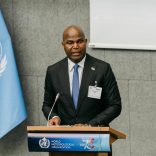
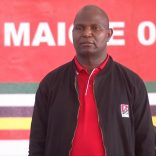
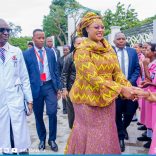
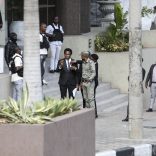
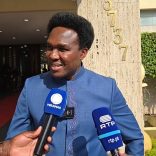




Leave a Reply
Be the First to Comment!
You must be logged in to post a comment.
You must be logged in to post a comment.